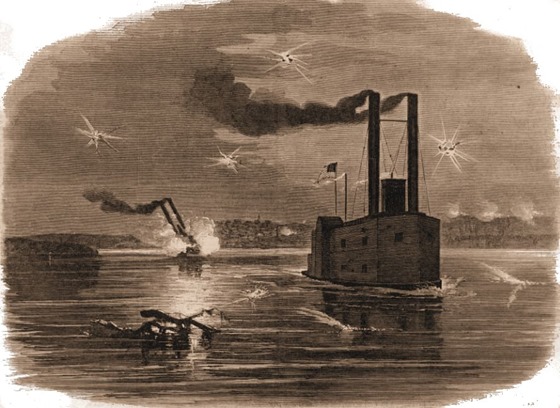Thursday, 26th [March]. Mrs.Dameron,Ginnie, Mrs. White, Mrs. Waugh and myself paid a visit to the establishment of Mr. Burnside. He is very rich and an old bachelor and ladies are often asked to view his gardens and pictures. The house is built and furnished after the European fashion (on a small scale),and is really a bijou of comfort inside, though homely without. The pictures disappointed me, except in two instances. The china-closet had nothing old in it. I have seen a far more beautiful collection of the real antique in my dear mother’s closet at “Portland Manor,” before we sold out in Maryland. Mr. B made his money himself, and I would not in the least object to being as rich as he. Whether new blood or old, I respect blood, but three generations of extreme poverty, with all the mean cares and roughening labors which surely accompanies it, changes its promptings as well as its color. The proud noble, warded off from every detrimental influence, may imagine himself formed by high heaven of the rarest porcelain, but he is a money production after all. And the famous blue blood is but a compound of the best of food and influences, relieved from commonness. I am observer enough to be thus far a materialist. Came home from the tour tired enough. We were desired to leave our names, and as I left that of Mrs. Dameron, the sister-in-law of Mr. Shepherd Brown, the richest man in town, and in whose house General Shepley is now living, I felt sure of being recommended by the servants at least; they were vastly polite and attentive. Mary Ogden and Rose Wilkinson took dinner with us. The latter hopes to get out of town soon. General Sherman has promised her mother a pass and a passage out. This officer has been very kind to the Wilkinsons. When Mrs.W—— was imprisoned he offered to do her shopping for her. Found out that the small round silk capes that we women folk are now wearing are called “Beauregards.” Mrs. White says that that story of the hero which depressed me so, is not true. I hope not—yet, he is a Creole. I have not faith in their domestic relations. Doctor Fenner was up to-day; he is clever, but I do not fancy him somehow. Anything outside of the common path would disturb and shock him. He is well-bred and amiable, however. Mr. Dudley was up with him; we all walked over to Mrs. Dameron’s. Ginnie and I then paid a visit to Mrs. Wells and Mrs. Montgomery. They were very glad to see us.
Mrs. M—— is not long for this world, I think.
The Judge looks rosy and hale as an Englishman. He will live to get another wife, I expect—this is his second—but he is devotedly attached to her.
Heard much report. Read Jeff Davis’ proclamation respecting the day appointed for fasting and prayer. It is to be celebrated to-morrow in the Cathedral in the lower part of the city. The Catholics are bolder here than others; ’tis said that they wish to provoke the Federals to attack them. Even Butler could never awe Father Mullen, who, when summoned to his presence, answered him boldly; when being accused of having refused to bury a Federal, replied fearlessly, “No, sir, I would bury you all with pleasure.” He told Butler that his soul was his own, also his lips, and that he would pray for the Southern Confederacy, and whatsoever he pleased. “Do you know,” said Butler, “that I can send you to Fort Jackson?” “Do you know,” returned Father Mullen, “that I can send your soul to hell?” Butler pronounced Doctor Stone and Father Mullen the boldest and bravest men in town. The first he sent to prison; the latter he never touched. This was because he feared to excite the indignation of his Catholic troops. We will go to the Cathedral if the weather and our health permit. Met Mrs. Miller, a sweet woman, returning from a visit to us in our absence. Found Mr. Waugh, Mrs. Waugh and Annie and Mrs. Evans when we reached home. The burning of the Bio Bio, which took place at the wharf on Sunday, was much discussed. The ladies were discussing whether the damaged silks would not be better and cheaper to wear than the now royal calico. Cotton seems really king at last. We hear daily of the burning of this valuable ware by the Confederates to prevent its falling into Federal hands. The Yankee Era reports the capture of three schooners laden with it at Manchac; also the taking of Pontchatoula by them. There was a great cannon on the newspaper, though no fight had taken place. Our Camp was some miles from Pontchatoula. This cannon belongs to the old press of the Delta, which was taken from its editors among other printing paraphernalia. I remarked that the Yankees had fired this cannon with more effect than any other since the war commenced. They often have it stuck in for a fancied victory. Farragut has been heard of. He is not captured, the Era says, but is on his way to Vicksburg for coal. Barges of it will be brought to him through the famous canal. What can our boats be about if Farragut is free to run our batteries?










